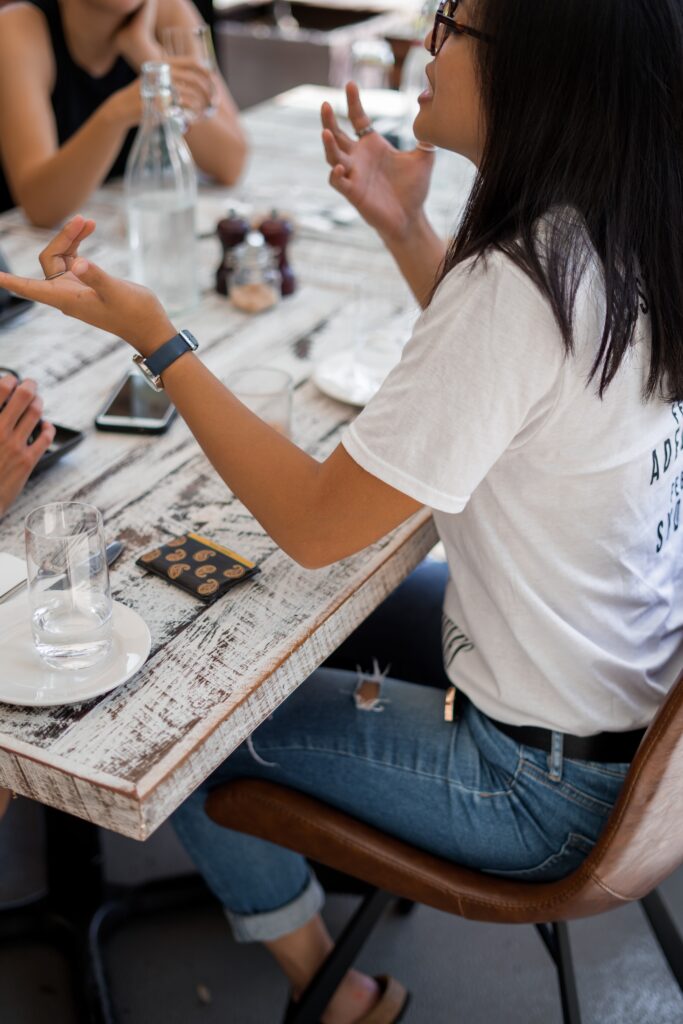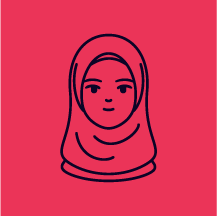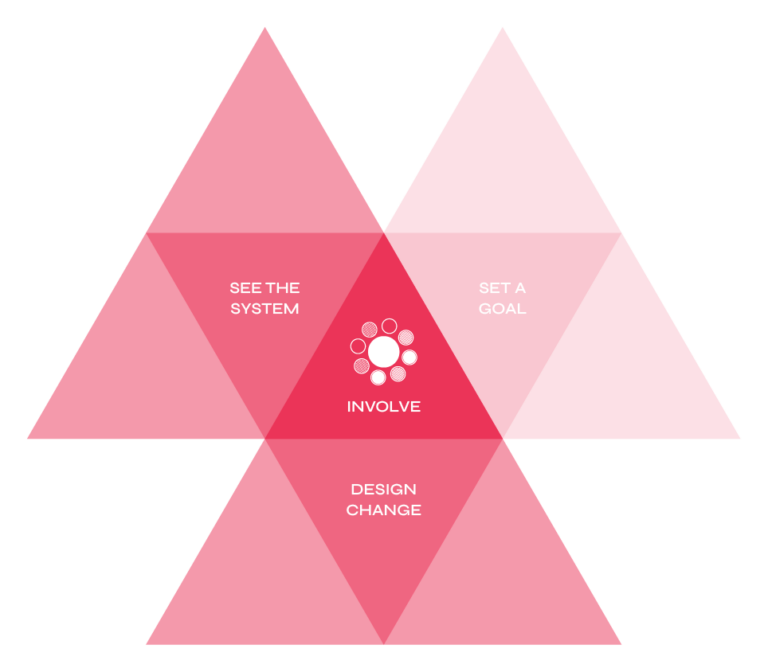Empowered youth use action research to examine trauma-informed practices and safe school environments.


For a long time, adults at Eskolta saw a need to uplift and center youth voices, especially at the organizational level, but they didn’t know how. That changed when they launched the Youth Participatory Action Research (YPAR) committee, a group of alternative transfer students who worked together on trauma-informed practices and safe school environments. Through YPAR, youth have shared their voices in ways that led to meaningful change.






In this case study, students were involved in improvement efforts to see the system and design change. Learn more about the student-powered improvement framework here.

Every year, the Youth Participatory Action Research (YPAR) Committee assembles a group of current and former alternative transfer school students from across New York City. Over the five months presented in this case study, youth engaged in action research to investigate issues important to young people. With support from Eskolta staff members, youth identified a problem, learned and applied research strategies to understand the root causes of that problem, and shared their findings with adults across the organization in order to inform change.
Centering student voice is a critical part of Eskolta’s approach to systems improvement. Across the organization, adults have long recognized a need for youth voice at the organizational level. As one member noted, “We wanted to initiate that by piloting YPAR this year.” Another noted, “We are constantly thinking about what it means to uplift and center youth voice. YPAR is a living example of giving youth opportunities to share their voices in a collaborative space,” explained a staff member. “We want to build youth learners, leaders, and advocates.” Rather than waiting to develop the perfect plan, the organization took the plunge in spite of COVID and other obstacles. The pilot year helped inform the organization’s work to further uplift and center youth voice and experience.
Following the design principle of starting small, the first YPAR group was made up of eight youth with support from four Eskolta staff members.
Eskolta recruited young people from across the dozens of schools they serve in New York. They prepared fliers that described the commitment and benefits of YPAR, including:
Eskolta asked teachers, counselors, and community-based organizations in their network to encourage students to apply.
The application process was designed to highlight the strengths of young people. “We set up recruitment so that all youth could do well and be positioned as experts,” said a staff member. The process included options, such as submitting a short video or a written application.
Staff approached interviews as an opportunity to set the tone for the program as a space where participants’ whole selves were welcomed and celebrated. Their aim was to shift the typical power dynamic between the interviewers (adults) and interviewees (youth). They also wanted to avoid approaches that make interviews feel like a high-stakes environment with the “right” answers.
Using questions from The Six Signature Traits of Inclusive Leadership as a starting point, Eskolta staff asked students to share what they were proud of and ways they show up for their communities. Interviewers made sure to share these points about themselves as well. Interviewers also took a flexible approach to the process, so that if a participant remained fairly quiet and opened up at the end of his interview, the team opted to interview him again. This gave the participant confidence to share more and express himself the second time around.
The YPAR committee had regular, virtual meetings throughout the school year in the evening. Meetings were organized and supported by Eskolta staff, centered on the value that staff and youth actively collaborated in this space. When youth were asked to share their stories or participate in a game or activity, adults were also asked to fully participate, leading to shared learning and community building.
Over the year, the YPAR Committee worked together to:
The outcomes for participants included developing an understanding of the importance of empathy, finding their voices, strengthening communication skills, and increasing their commitment to pursue a degree in education.
For Eskolta, YPAR boosted the organization’s morale and helped Eskoltans tap into their inner youth while having fun in a caring, safe, and joyful space. The pilot year helped team members discover how much planning and designing is required to meaningfully incorporate youth into the work. Eskolta is expecting to expand the size of YPAR and incorporate more opportunities for youth to be involved in Eskolta’s day-to-day operations.
In YPAR, youth are seen as the experts of their own experiences. This means that youth were fully in charge of identifying the problems they wanted to investigate. By deeply investigating what mattered to them, this group of participants ultimately chose the topic of developing trauma-informed practices and creating safe school environments. As one staff member said, “Youth are very perceptive. They are very aware of what they are experiencing. Their observations of what they saw in school shaped the work they did.” One student shared, “There’s different ways to completely understand someone else and how to go about it.”
One of the core beliefs of the work is centering youth voice and experience. It is important that adults monitor growth based on where students begin, not at a projected or idealized starting point. During the pilot year, Eskolta staff sought to uplift all participants’ progress and successes, no matter the perceived size of the accomplishment. Additionally, Eskolta facilitators continuously reflected on their role in the work in order to avoid influencing the process. Setting and maintaining this intention helped facilitators remove their expectations, which led to the students feeling more comfortable, empowered, and celebrated.
Creating a space where youth wanted to be was a priority for YPAR. Initial meetings were dedicated to cultivating meaningful connection and regular check-ins. Some specific examples include:
Eskolta meeting organizers were very aware of the potential power dynamics between adults and youth. They made sure that adults participated fully in every activity (e.g., the reflection mirror) in order to better assess the engagement level of the activities for a youth audience. The adults also included two transfer school alumni currently working with Eskolta who were close in age and had similar experiences.
Eskolta also shared these strategies that contributed to spaces of care, truth, and hope:
Central to the vision of YPAR is to “build youth learners, leaders, and advocates.” To that end, there was a real focus on deepening knowledge and developing skills. The organizers asked themselves, “ What tools do students need to do this work? How do we strengthen the tools we give students up front so their projects can go further?” For example, students spent time developing research and communication skills that expanded their knowledge of appropriate sources for project research.
All of the materials students needed were organized and available to students through a shared Google Drive. While they communicated with staff through email, they also created their own youth-only group text to support one another.